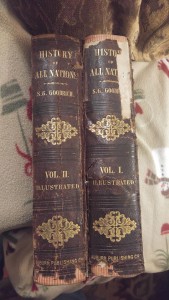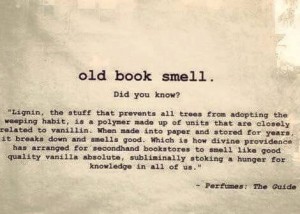The following is from the preface of a book I have on Ancient History. It was written in the late 1800s. Enjoy!
To-day superficiality and sensation reign supreme, and the classics of literature are barely studied. The classics are largely relegated to the shelves of public libraries…The art of printing has revolutionized the world. The printing-press has proved far more potent than any other civilizing influence. Learning is no longer confined to the few. The literature of civilization is free to all. The danger lies in reading everything we come across. Indiscriminate reading is seldom beneficial.
While the printing press has proved a potent power for good, it has also been used for ignominious purposes. In many quarters the first consideration in accepting an author’s manuscript to-day is not whether it be a book that is worthy of publication, but whether it be a book that is sufficiently sensational to make it sell. There exists, however, a large and growing class of readers who are not satisfied with these superficial books of the hour. They crave for something more substantial than the sensational reading-matter offered them in “up-to-date” novels, decadent newspapers, and catch-penny magazines. The times are ripe for a revival of the fittest. On the intellectual horizon of the twentieth century breaks the dawn of a literary renaissance. The workers of the world long for “more light.” They desire to have the gates of knowledge thrown wide open, recognizing instinctively that “knowledge is power,” and that those who toil will ever be governed by those who think.
In the early days of printing, the books to which the people had access were few and far between. To-day the world is flooded with books, good, bad, and indifferent. The question is no longer how can I obtain a printed book, but how am I to know what printed book to read? This is a most important question for those whose leisure for reading is limited…
The books…under the head of classics…books of acknowledged greatness…Read them! There is nothing except human love from which you can derive greater happiness than the love of reading. Books prove companions in sorrow and solitude. They assuage the pangs of physical pain. They enable you to commune with all the master minds of by-gone ages. The light of intellect flashes across the printed page. The recorded thoughts of literature live on forever. Books are the “legacies of genius.” We are all heirs to the magic realm of fancy, the republic of letters, the glorious domain of immortal thought. The pyramids of Nubia and Egypt, the palaces and sculptured slabs of Nineveh, the cyclopean walls of Italy and Greece, the temples of India – none have escaped the ravages of Time. The beautiful statues of antiquity – the Venus of Melos, the sculptures of the Parthenon – will sooner or later vanish from the face of the earth. But the poetry of Homer, Dante, and Shakespeare, the philosophy of Plato and Aristotle, the wisdom of Solomon and Socrates, the eloquence of Demosthenes and Cicero will last as long as earth itself. The material creations of art crumble to dust. Soul-stirring thoughts, the creations of intellect, alone survive.
“To be without books,” exclaimed Ruskin, “is the abyss of penury; don’t endure it.” Books that we own after awhile become actual companions. “He that loveth a book,” says Isaac Barrow, “will never want a faithful friend, a wholesome counsellor, a cheerful companion or effectual comforter. By study, by reading, by thinking, one may innocently divert and pleasantly entertain himself as in a weathers, so in all fortune.”
The trend of the times is toward mental culture. The Intellectual pleasures and luxuries of life are made accessible to every home where the love of reading prevails. The publishers have provided a feast with the “Immortals.” The flow of soul comes from the authors of all ages. Let the toast be what Alfonso, King of Aragon was wont to say were the four best things of life: “Old wood burn! Old wine to drink! Old friends to converse with! Old books to read!” Sic itur ad astra.


